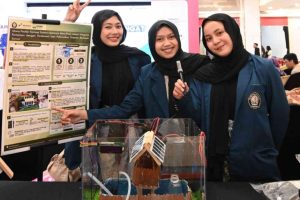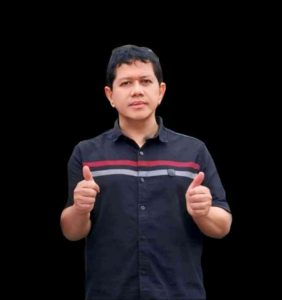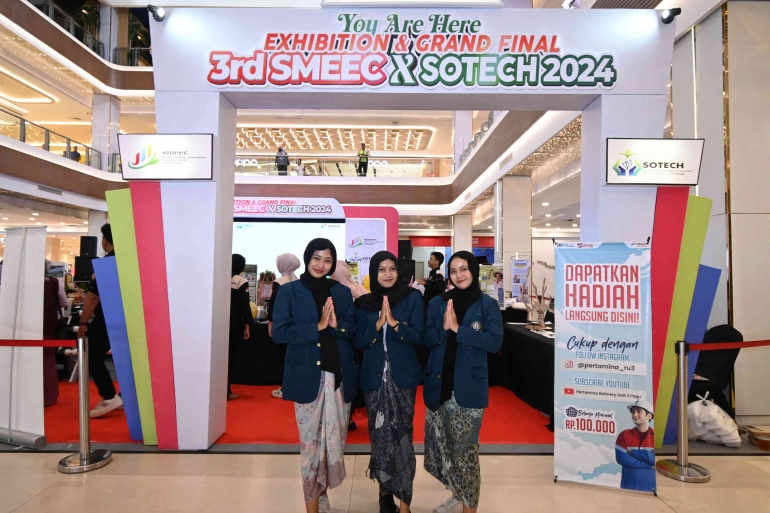In the middle of 2024, Undip Vocational Industrial Chemical Engineering Technology (TRKI) students again made brilliant achievements by receiving 1st place in the Social and Technology Innovation Challenge (SoTech) competition. This prestigious activity was organized by PT Pertamina Refinery Unit III Plaju Palembang, South Sumatra and in collaboration with the Antara Djaya Foundation. The ICEDEEP (Smart Innovation for Agricultural Development) team, post-millennial innovators from TRKI Vocational Undip students, have developed the digitalization of the mina padi system. The ICEDEEP team is chaired by Syaikha Butsaina Dhiya’ulhaq and her colleagues Malika Pintanada Kaladinanty and Haliza Ramadiani with Supervisor Mohamad Endy Yulianto. Syaikha Butsaina Dhiya’ulhaq, who is often called Syaikha, a class of 2020 student, said that the SoTech competition is basically a case-based competition, where participants are given 5 problem topics related to agriculture (farming, fisheries and animal husbandry) experienced by activity actors in the Banyuasin area, South Sumatra, which must then be completed by participants through innovation in the application of science and technology (Technology category) and mentoring steps (Social category) developed by each team. The SoTech competition series started in February, which was attended by 189 participants, from 71 universities throughout Indonesia. In the top 12 preliminary round, each team was asked to create an innovation prototype through SoTech funding worth IDR 2,000,000 per team (March – May). The highlight of the event was the Grand Final which was held on June 2 2024 at Palembang Indah Mall to present and simulate the results of the prototype that had been previously developed in front of the jury and SoTech Exhibition attendees, explained Syaikha.


Syaikha, who is an outstanding student, has 5 IPRs, 1 reputable international paper and several mass media publications revealed that her innovation was named Many Paddy. This innovation is basically the development of Mina Padi with the layout and integration of agriculture, livestock and fisheries being changed into a new structure, complete with the use of solar panel powered sensor technology.
Meanwhile, Malika Pintanada Kaladinanty, a class of 2022 student with 2 IPRs, usually known as Malika, stated that the prototype, which was developed with a reduction scale of 1:500, succeeded in integrating the fish pond water pH sensor with the rice field water level sensor. If the pH of the fish pond drops below 5, the water will flow from the pond to the rice fields.
Malika also added that at a pH below 5, there is fish food that has been decomposed along with fish residue, forming nitrate and nitrogen which, if used as rice water, will help meet the nutrient needs of the rice fields. Water will flow from the pond to the rice fields until the water level in the rice fields reaches 1.5 cm. If the water in the rice field is less than 1 cm, then the water will be supplied from a fish pond or external water source. “If the water in the rice field is more than 1.5 cm, the sensor will detect it and immediately remove the water from the rice field until the optimal height is reached,” said Haliza.
Unmitigated, the innovative prototype is also equipped with a mini fermenter which is located near the duck pen, for fermenting duck fish feces mixed with other ingredients such as EM4, rice bran, water and brown sugar solution for 2 weeks, which is then used as feed for the fish being bred. under the duck pen. “With the application of these two integrated sensors, it is hoped that the use of water as the main resource in agricultural activities will become more efficient and optimal,” explained Syaikha.
Meanwhile, the Dean of the UNDIP Vocational School, Prof. Dr. Ir. Budiyono, M.Si said, UNDIP Vocational School should be proud, its students have shown the best achievements and have had an impact on the wider community, he explained. Budiyono hopes that this innovative idea can bring benefits and hope for the future of sustainable, productive agriculture. This project is a clear example of how technology and collaboration can produce solutions that have a positive impact on farmers, the environment and society as a whole.


Recent Comments